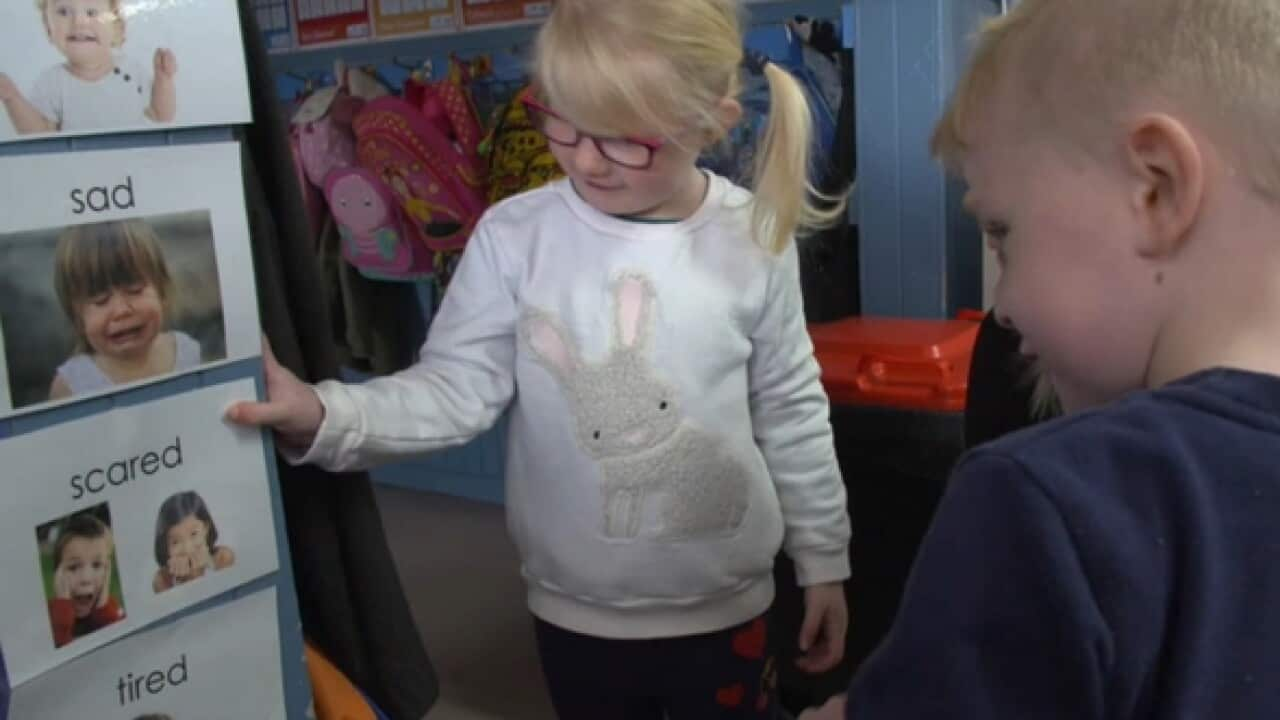It is morning drop-off time at Tyabb Village Children's Centre in Victoria, and four-year-old Quinn is struggling.
Overwhelmed, he cries “can we go home now mum?".
"He is just having a bit of separation anxiety lately," his mother Jodie tells SBS News.
"Just generally, I think, with everything. With 'kindy', with being left."

Children doing yoga. Source: SBS
Staff at the centre are helping the children develop resilience and self-esteem, to decrease the chances of them experiencing mental health problems.
During 'mat time' they chorus affirmations that help build the children's confidence.
Today they enthusiastically repeat "I can do it."
Yoga sessions and breathing exercises also arm the children with strategies for calming down in stressful situations.
Pictures pinned on walls around the room illustrate different emotions, including happy, sad, excited and scared so the children can express themselves.
They are encouraged to pick out the picture that sums up how they are feeling, and talk about it.
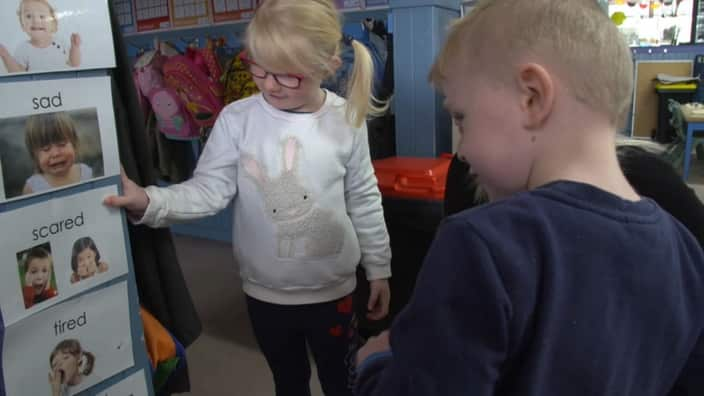
Emotion cards help children identify how they are feeling Source: SBS
The centre is among 2,400 early learning services that have signed-up to a mental health promotion, protection and early intervention initiative focused on children from birth to 18 years of age.
'Be You' was developed by national mental health charity BeyondBlue, and is delivered by Early Childhood Australia and Headspace.
It aims to provide educators with knowledge, resources and strategies for helping children and young people achieve their best possible mental health and offers educators access to online professional learning.
"Then they are also supported by a consultant," said Judy Kynaston, general maanager of Be You at Early Childhood Australia.
"[They] work with those services to help them identify their strategies, help them identify where might be their starting point might be, and what they will do in order to work with children and their families."
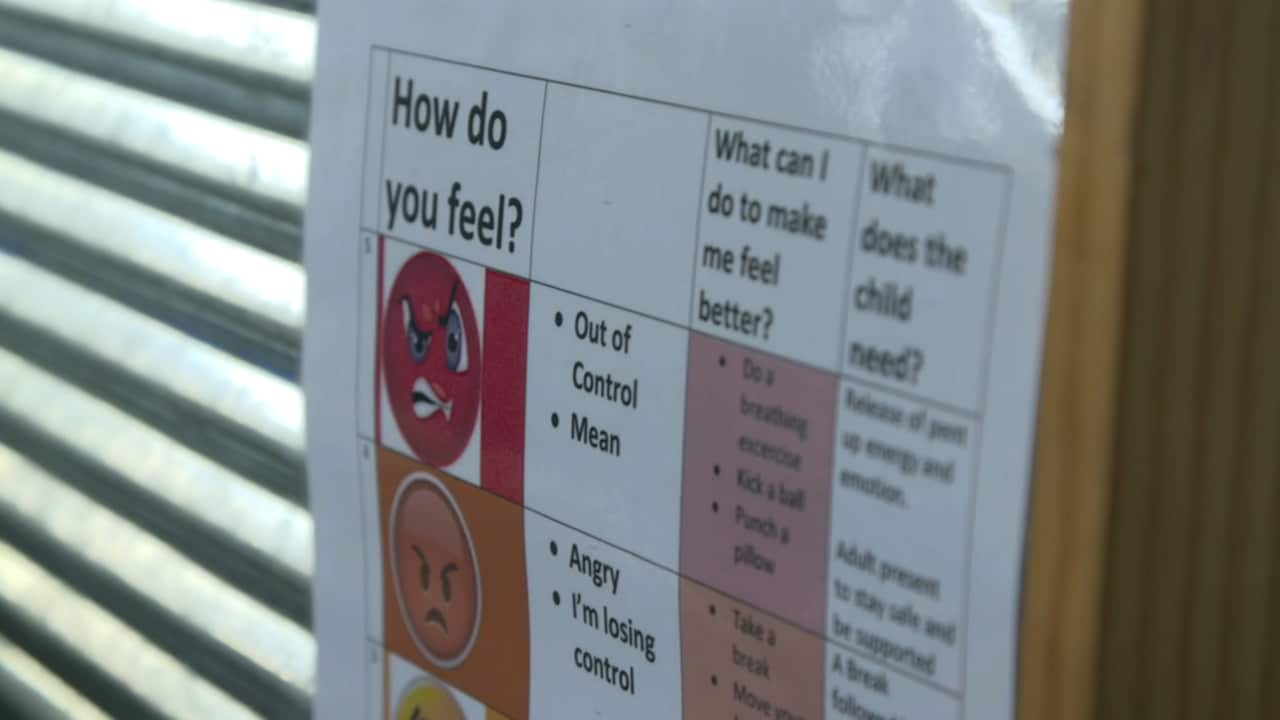
Resources encourage children to identify and manage their feelings. Source: SBS
With some children spending up to five days a week in childcare, educators have a powerful influence shaping young minds.
They can also be the first to notice if a child is showing signs of mental health problems, which can be more prevalent in migrant children.
"We have noticed a definite increase in children who have experienced trauma, or adverse childhood experiences,” said Tyabb Village centre manager Lavinia Jenkin.
"If we do not attend to that immediately at this age group that is just going to be unfinished business that is just going to escalate for them as they go throughout their years."
Families welcome focus on mental health
Primary school teacher Amy Monea has seen a lot of young children struggle with anxiety.
She wants her four-year-old son Max’s transition to school to be a positive experience, and is confident the wellbeing program will help.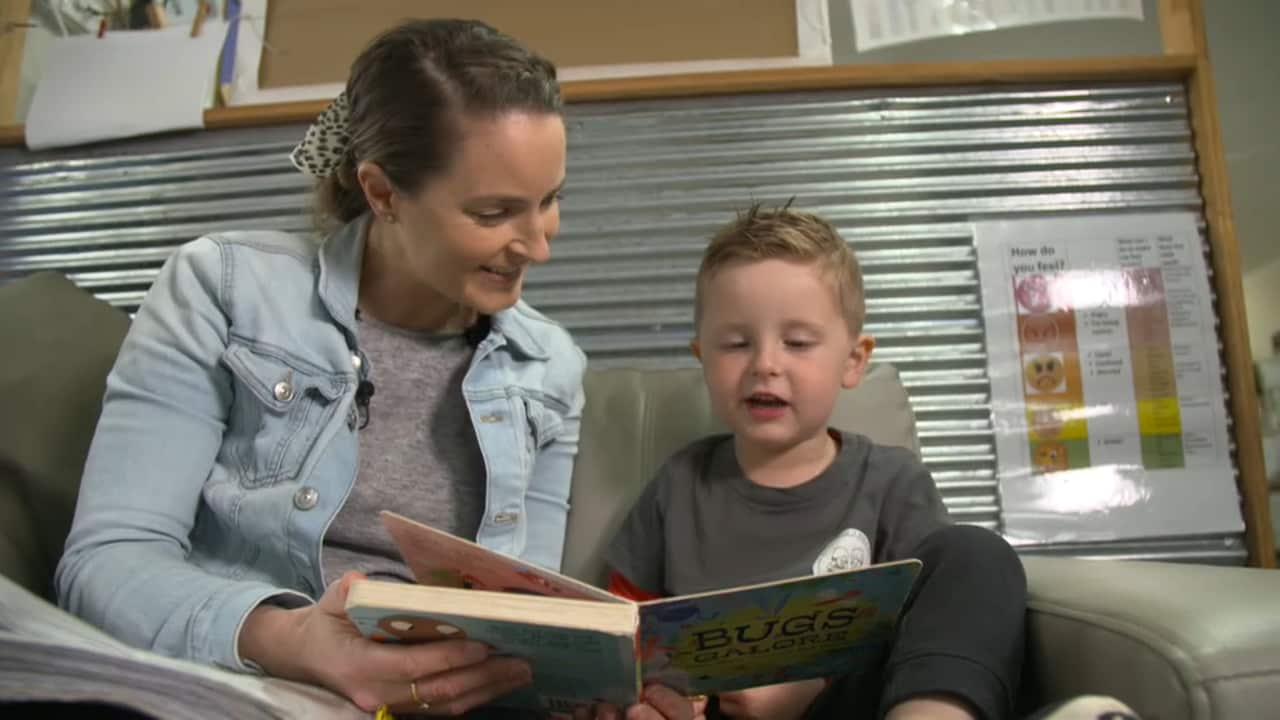

Amy Monea and her son Max enjoy some quiet time. Source: SBS
"I just feel he is going to be better set up to be able to talk to his peers, and let them know how he is feeling and sort out problems especially without hurting, biting, pushing, those sort of things."
Mother-of-four Ashleigh Edgar welcomed the centre's work fostering good mental health.
“Mental health issues run in my family, my husband's family.
“We have got depression – we have got lots of things going on.”
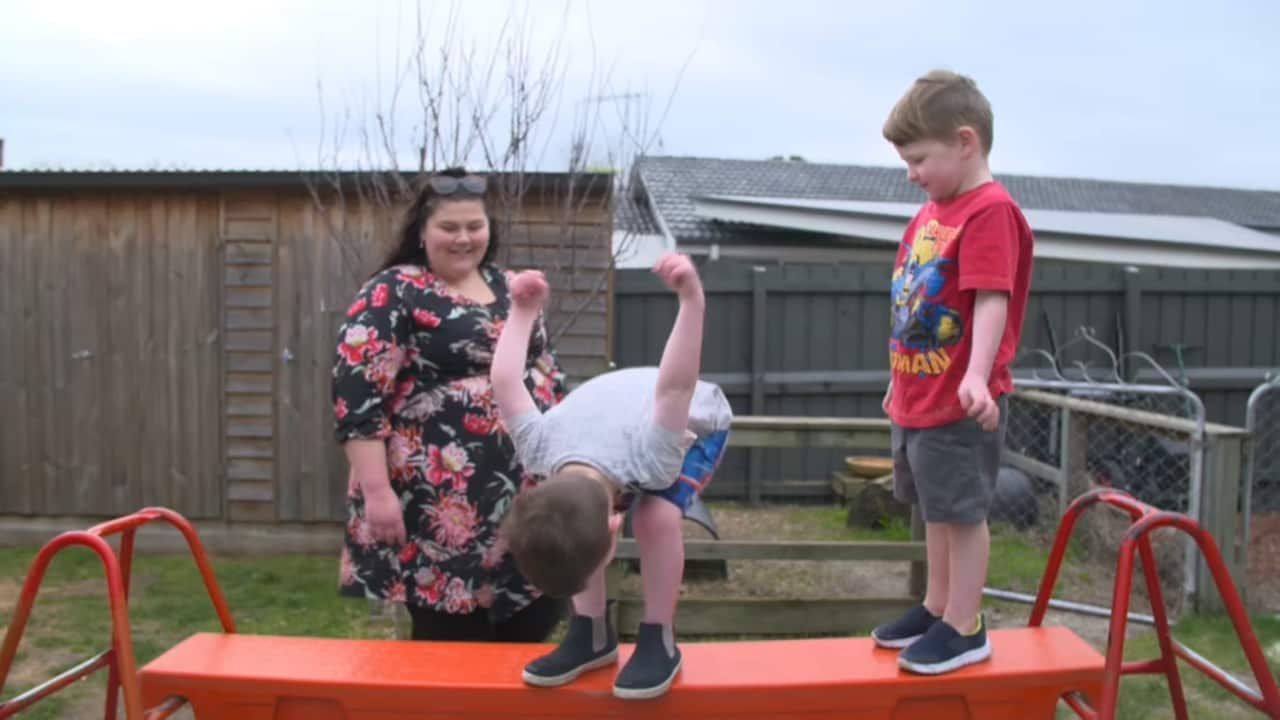
Ashleigh Edgar with two of her children. Source: SBS
“And then two of my boys have autism and have also been diagnosed with anxiety.”
“So mental health is a huge concern [for us]."
More information about mental health is available at and (for people aged five to 25) on 1800 55 1800.
